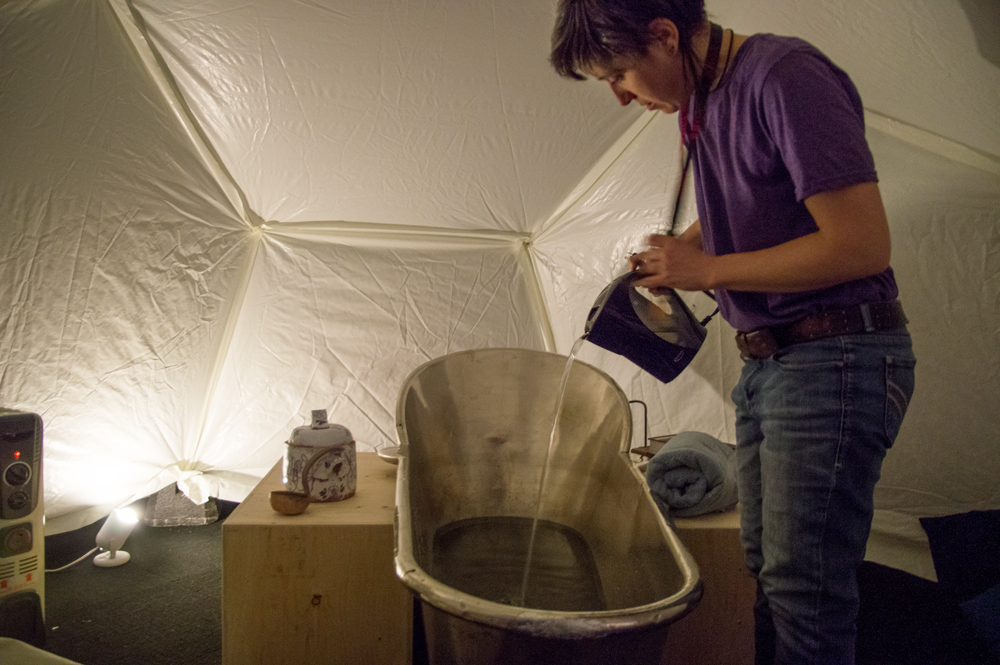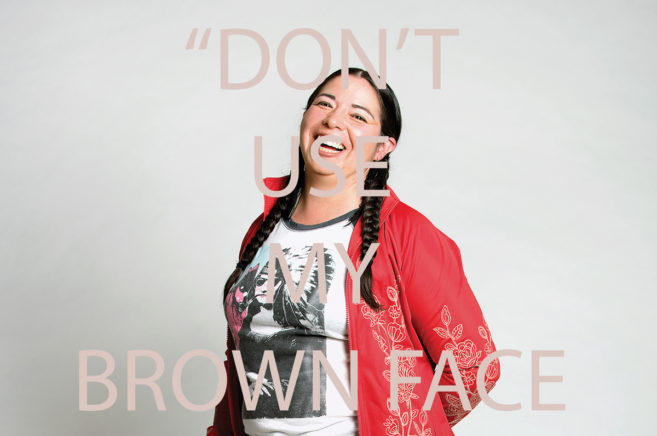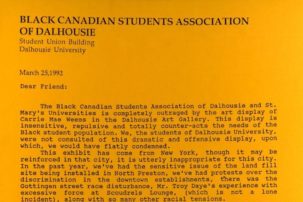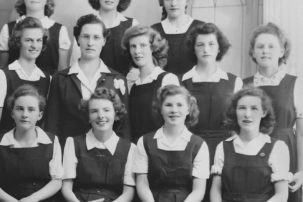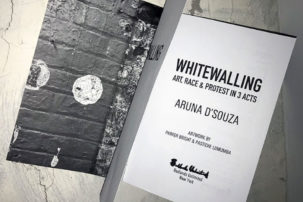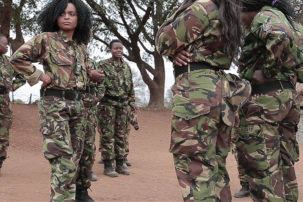“Treat yourself” has become a capitalist command. So argues Esther Bloom in the Atlantic, and it’s hard to disagree. “Me time” means nothing without the correct accoutrements—the perfect sheet mask, a cold-pressed juice, a dimly lit, eucalyptus-scented spin class. I’m worse than most. My existence hangs on a carefully calibrated barter system: a stressful work presentation is balanced with an hour of Netflix, an emotionally draining conversation recouped by a manicure. I’m forever negotiating bits of my life back. But nothing compares to my baths. They’re the ultimate reward, stocked precisely with Santa Maria Novella oils, Cire Trudon candles, magazines and fresh towels.
Baths are therapy I can understand. Perhaps that’s why MKV, a performance project by Radiodress (aka Reena Katz) offering a series of ritual baths, caught my eye.
I’m not the first hydrotherapy champion. Ancient Sasanians built public baths. The Romans were fans. Consumptive Germans with means flocked to Heiligendamm. But how, in this day and age, can the restorative, transformative aspects of bathing culture be segmented from the imperative to stock your bathroom cupboard? And does it need to be segmented at all?
Radiodress walks this careful line in the Art Gallery of York University’s “Centre for Incidental Activisms (CIA) #3,” a group show that also includes projects by Greg Staats and Syrus Marcus Ware. It’s not bathing stripped of pleasure, but it’s bathing predicated on a very particular kind of pleasure: a pleasure of precision—in its references, process and objects.
It begins with the source material—the traditional Jewish practice of mikvah baths, which, although occasionally used by men, are primarily the domain of women, who bathe after menstruation before resuming sexual relations with their husbands in accordance with family purity law. MKV upends these restrictions and offers a “comforting and transformative marker of life shifts, specifically for queer and trans-identified people.”
“In my own journey I started doing this ritual bath practice called mikvah about two years ago and really fell in love with it as a healing modality,” says Radiodress. “And so I started thinking about how I might be able to offer this in a contemporary way, in a performative way, but ultimately in a way that felt it was starting with a traditional framework and building on it through shared knowledge and collective learning that queer and trans folks embrace and do so well.”
MKV joins a wave of feminist revisions and expansions of the (still contentious) mikvah practice. “I have been connecting with progressive Jews, feminist Jews, queer and trans Jews who are using this ritual in their life,” says Radiodress. “There’s someone in Berkeley compiling a zine about queer mikvah, there’s an amazing mikvah in Boston called Mayyim Hayyim that’s really focusing on helping folks with disabilities feel they can access mikvah. They are also doing a trans education for Shomrot [guides] who don’t necessarily know how to work with trans bodies. So it’s an ongoing conversation in the community.”
There’s no question that MKV offers a revisionist take. It is open to gentiles, it invites traditionally “unclean” material (spit, urine, ejaculate, menstrual blood), it’s five hours long and it partly takes place in a gallery. It also bears little resemblance to my conspicuous-consumption-driven splashes. For one, my baths don’t begin by tracing the historic portage routes along what are now Davenport and Weston Roads in Toronto.
“I was thinking about what it means to use a traditional practice that doesn’t originate in Turtle Island, but mikvah is so about land, as the waters are traditionally sourced from rain, snow or ground water,” says Radiodress. “So I was coming up with ways I could make this new version of mikvah embrace and include technologies of water before contact.”
After meeting Radiodress and her immersion subject at Bloor and Lansdowne, we head up this route, discussing our relationship with water and bathing before we stop at the Black Creek Parkland for water. The sound changes there. Nestled just to the east of Toronto’s Jane and Finch neighbourhood, the rushing cars and city buzz drop away as you descend into the park, where the neighbouring high-rises disappear behind trees. We scrambled down to the river, gathering water in a copper vessel before continuing to the AGYU in silence.
Once within the gallery space, Radiodress talks with participants about their aims. “We have a conversation about what the participant wants from this immersion experience, which I visually map; we select texts, and songs, as part of it; and then we talk about materials,” she explains. “So they can add any material from their body, any medication, any hormones they might be taking, and I have some supplies there that I might suggest we use. So it’s like a kind of alchemical experience.”
It’s here that Radiodress’s bath-time supplements put my own to shame. They include vessels made by ceramic artist Nicki Green, a trans woman whose work bears imagery from gender-transition operations; Malakh Shmundie, a healing tincture that translates to “angel pussy” made by performance artist Nomy Lamm; and salt from the only Palestinian producer on the shores of the Dead Sea. Radiodress carefully selected each object, and procured them by working with other artists and activists. Once the participant makes their selections, Radiodress fills the bath by hand, a 45-minute process, and the immersion proper begins.
Here’s a performance that takes pleasure in its products. But rather than falling into the consumerist trap of self-care myths, Radiodress has tempered these impulses by turning them into an occasion for collaboration. I often think of activist art as something that looks outward—at social crises, environmental degradation, political policy. But MKV is deeply internal. It is not an attempt to correct abuses of mikvah, or a demand that the traditional practice widens to include a broader spectrum of participants (although it certainly doesn’t preclude these outcomes). Instead, it offers self-care that affirms conscientious pleasure as power, and substitutes bartering back for experiencing more.

